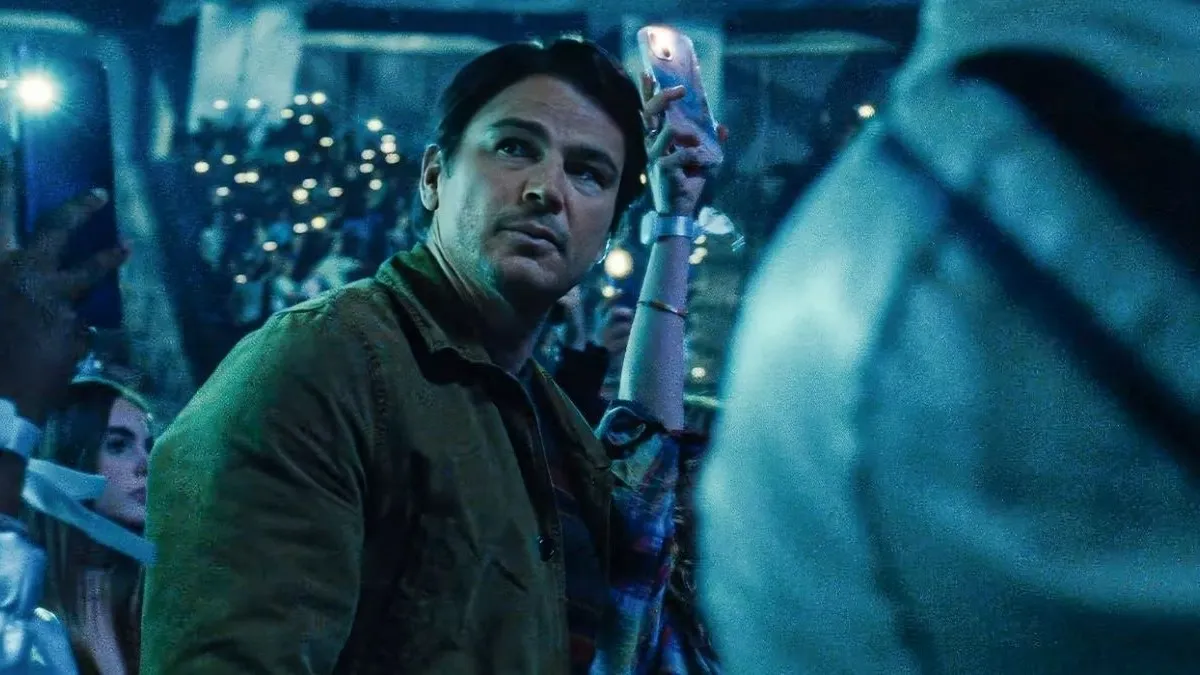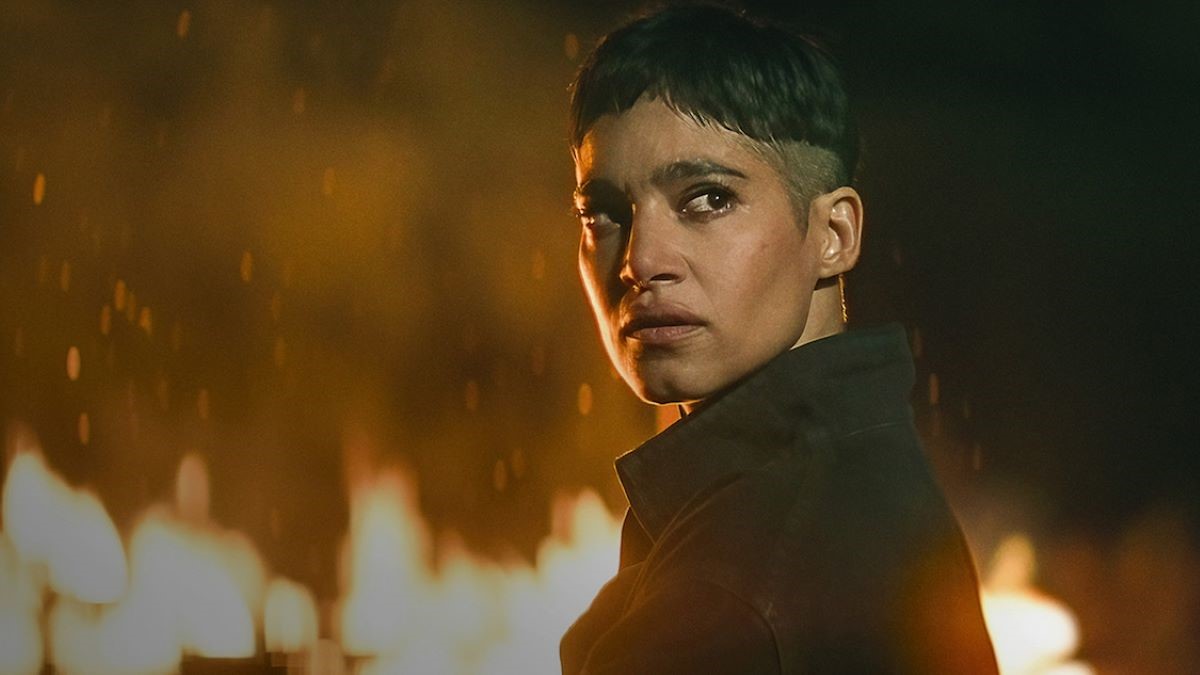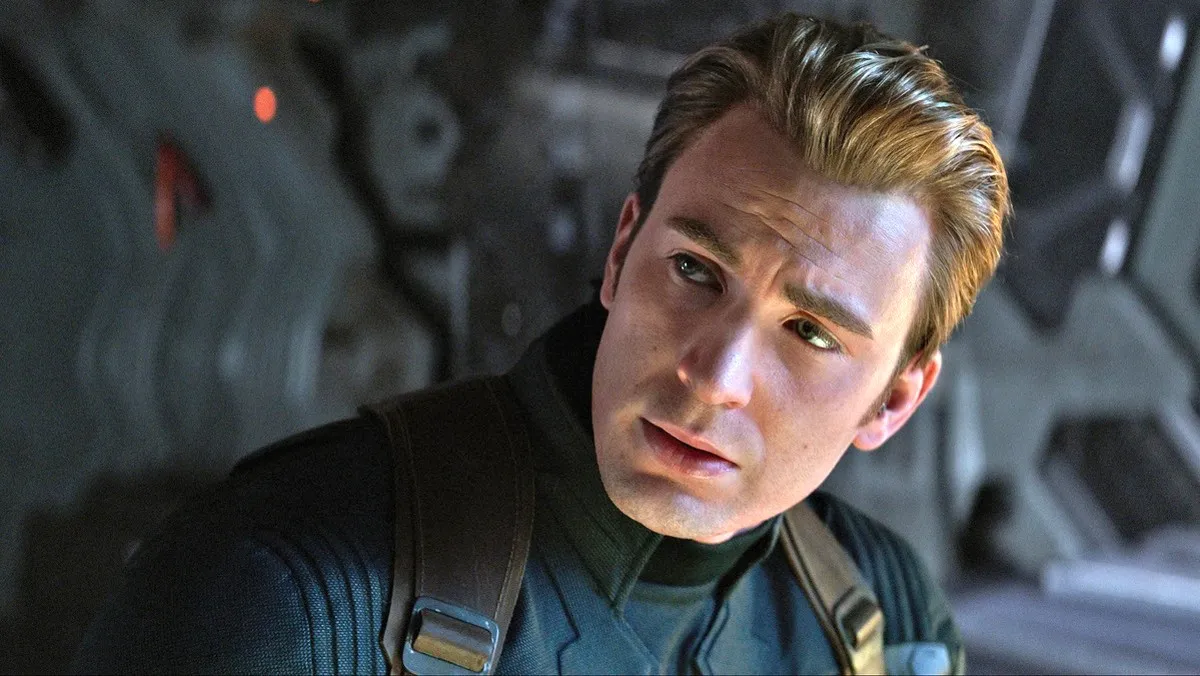There is a fathomless wisdom to The Card Counter which informs every frame. On the surface, it concerns William Tell, an ex-military interrogator and professional card player. Someone Oscar Isaac embodies with a stoic detachment, which ties in with the glacial pacing determined by writer-director Paul Schrader.
In the industry, Schrader is known for his long-term collaborations with Martin Scorsese, who executive produces on this project. The industry vet’s need to examine human weakness, personal belief systems and how they can corrupt or enlighten, has informed much of his work. From the nightmare dreamscape of Nicolas Cage headliner Bringing Out The Dead, to cinematic icons such as Travis Bickle in Taxi Driver, the theme is pervasive.
In The Card Counter, that exploration continues, as Paul Schrader draws deeper on the wellspring of human experience. Philosophical touchstones, including the writings of Roman emperor Marcus Aurelius, point to a pre-occupation with emotional detachment. This is an ethos which is drawn out through the measured internal monologues that inform both story and character. William is our card counter perpetually obsessed by discipline, routine, and control.
His motel room is draped with bed sheets and all material wealth is concealed beneath it. Countless scenes are given over to his journal, where unspoken thoughts and feelings are documented. William is almost monastic in his reverence for this lifestyle, while cinematographer Alexander Dynan merely records movement rather than emotion.
During the numerous card games that unfold, audiences are given verbal and visual instruction on what they are watching. There is a fascination in the precision, an earnest insistence behind every syllable, and it all ties back to character. Dialogue scenes are protracted, disjointed, and punctuated by pregnant pauses. There is a visual aesthetic which feels inherently cool, while any relationships only ever temporary.
Tiffany Haddish offers some contrast to William as La Linda, if only in her approach to the gaming table. There are hints of a past association, opportunities for an emotional connection, and moments of quiet before the storm. Robert Leven Been and Giancarlo Vulcano imbue their score with an audible intensity, which matches that on screen. This lo-fi, feedback-driven contribution puts audiences off balance and ties into Ashley Fenton’s production design.
These casinos and card tables are cloaked in the hedonistic undertones of those who frequent them. William Tell is not the exception here, but rather an accepted aberration amongst a multitude. Redemption is an uphill battle, where his past transgressions continually throw up mental barriers blocking progress. In the fleeting sequences of brutality which pepper this film, Paul Schrader drives home his political points concerning the mistreatment of detainees and the moral price of participation.
Fish eye lens, over saturated dogma-style framing, and crippled perspective get under the skin. Harsh strip lights, thrash metal, and torture by way of human rights violations are given free rein. In contrast, everything outside that is populated with muted color schemes and barely raised voices. From start to finish, Oscar Isaac remains under the radar, giving away little, yet radiating barely checked aggression.
Tye Sheridan, who many will remember from Ready Player One, is perhaps the most surprising addition here as Cirk. A disheveled plot device, who enables Paul Scrader to add another thematic shade into the mix through Willem Dafoe’s Major John Gordo. There is no denying the earnest nature of Tye Sheridan’s contribution, but he stands little chance of holding the screen against these co-stars.
That Cirk is thinly drawn and continually overshadowed also works against him. A fact that becomes even more apparent when Willem Dafoe turns up either in flashback or present day. In the few scenes he has, Willem Dafoe makes R. Lee Emery look like a substitute teacher. This parade ground grotesque is there to hammer home the psychological aftermath of intentional interrogation. A trick which Willem Dafoe does to devastating effect.
Like an intangible specter which haunts the dreams of our protagonist, Major John Gordo appears in waves of visual nausea. An ever-present threat, lingering dread, and singularly cold blooded apparition. Paul Schrader uses him to peel back the layers, dwell in our darkness and end on ambiguity. Clean cut conclusions are for other filmmakers who thrive in the mainstream arena, not for artists like him.
A writer-director regarded by many as an intellectual maverick, Paul Schrader remains lionized by an industry incapable of labeling him. He is an uncompromising filmmaker, who has maintained a consistent agenda for over forty five years; The Card Counter merely carries that on.






